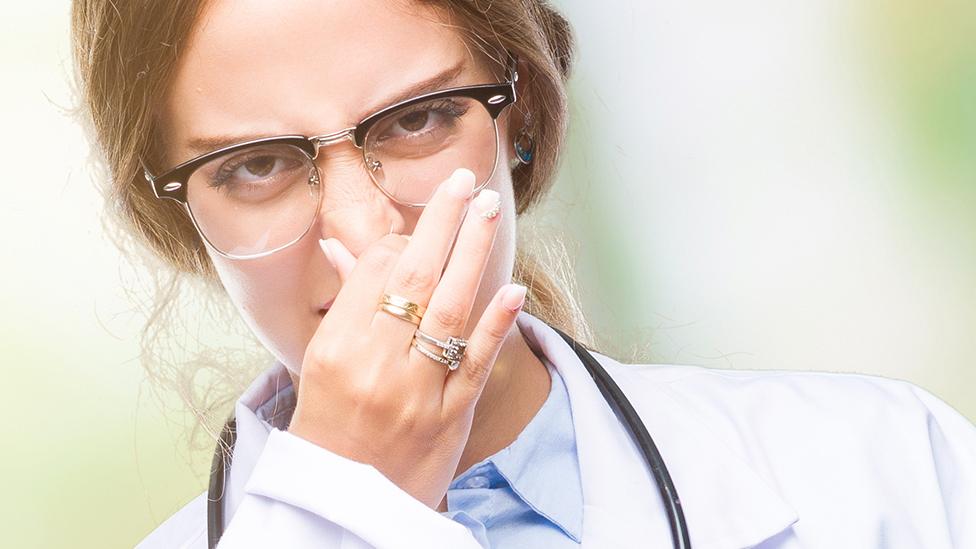Nose-picking health workers more likely to get Covid, study shows
- Published

Doctors were the most frequent nose-pickers, according to a survey of Dutch health workers
Healthcare workers who pick their noses are more likely to get Covid and should be made aware of the infection risk, a study suggests.
Of 219 participants, 17% of those who admitted nose-picking tested positive for Covid compared to 6% of those who did not pick their noses.
The Dutch researchers said the role of nose-picking in spreading the virus could be underestimated.
Men and younger people were more likely to admit to the habit, they found.
The survey of healthcare workers at two university medical centres in The Netherlands in 2020 revealed the majority (85%) of respondents admitted to picking their nose "at least incidentally" - somewhere between monthly, weekly and daily.
And doctors were the most frequent nose-pickers (95%), followed by support staff (86%) and nurses (80%), the data showed.
In contrast, a third of staff admitted to biting their nails but this didn't make a positive Covid test any more likely.
This may be because of the protective effects of saliva, the researchers said, which means the mouth is not "an entrance route" for the virus.
Having a beard or wearing glasses did not increase the risk of getting Covid either, despite the potential issues with wearing masks correctly, the study found.
Moist tissues
The researchers said as the nose was a main route for coronavirus to get into the body, nose-picking may make infection easier by directly introducing virus particles on the hands into the nose.
The habit could also mean the virus spreading more easily to other people.
Even before symptoms start developing, they explained there would be a lot of virus in the moist tissues that line the nose in the days after becoming infected.
"Subsequently, nose picking healthcare workers who are infected with [coronavirus] could contaminate the work environment, potentially leading to further transmission," they concluded.
The study authors pointed to the fact that the spread of coronavirus between staff was an important problem in hospitals, saying the role of nose picking could be "underestimated".
, they recommended "educational sessions against nose-picking in infection prevention guidelines".
Related topics
- Published27 October 2022